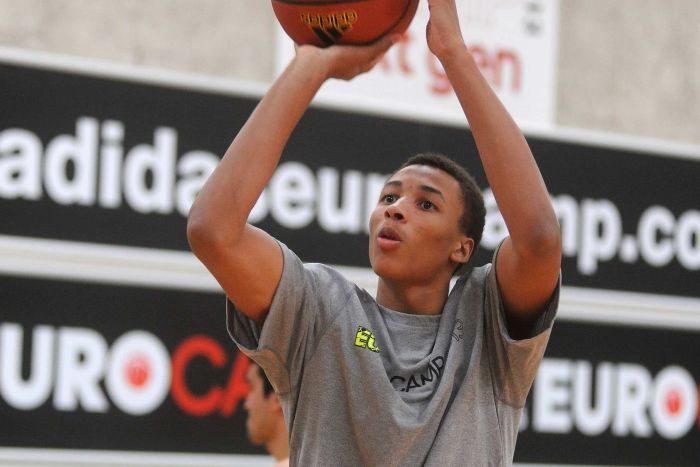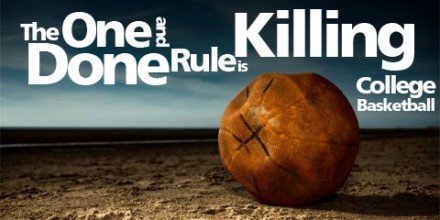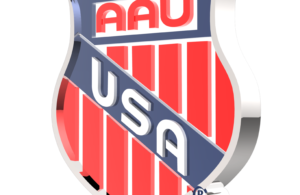- 2019/2020 Recap: Lady Scots Conquer First Round of CIF!
- 2019 Recap: Justin Flowe Wins the Dick Butkus Award
- Upland Lady Scots Have Their Revenge
- What is BBCOR?
- Tommy John, A Name To Be Feared
- The Game Plan
- Too Much Tackle?
- Is Cheer A Sport?
- Transgender Inclusion in Youth Sports
- Are You Counting Sheep Right?
Youth and Greatness in the NBA
- Updated: August 12, 2014
If you’re an NBA fan, and haven’t been living under the proverbial rock, you are probably aware that LeBron James is coming back to the Cleveland Cavaliers. The fact that the basketball world was holding its collective breath, waiting for any sliver of a clue as to where he would go, is a testament to how great a player he has become. The fact that he is far and away the best player in the NBA today is not in doubt.
He will forever be mentioned among the all-time greats such as Michael Jordan, Wilt Chamberlain, Kareem Adbul-Jabbar and Bill Russell. But there’s one thing he doesn’t have in common with those gentlemen. He never played in college, having come straight to the NBA from St. Vincent-St. Mary High School in 2003.
James is not alone in making the jump straight from high school to NBA stardom. Kevin Garnett, Kobe Bryant, Tracy McGrady, Amar’e Stoudemire and Jermaine O’Neal are all part of a successful group of high school players, from 1995 to 2005, who have made that transition. Some of this group are sure-fire future Hall of Famers. While many others have had long and productive professional careers.
But for all the success stories, there have been plenty of failures. Kwame Brown immediately comes to mind. He was drafted first overall by the Washington Wizards in 2001, and while he played in the NBA for 10 years, he was merely a journeyman and widely considered a bust. He never came remotely close to fulfilling his vast talent potential.
And then there’s the true cautionary tales such as Korleone Young, who played a grand total of fifteen minutes in the League. While DeAngelo Collins and Lenny Cooke never even got drafted after declaring themselves draft eligible in 2002. The unfortunate part of those who went undrafted is that they no longer had the option of playing with a college scholarship. Sure, they could go back to college, but on their own dime and never to play the sport at which they excelled.
The history of the prep-to-pro phenomenon is interesting. In 1974, Moses Malone went to the Utah Stars of the now defunct American Basketball Association. He moved on to the NBA a few years later and had a highly successful career. In that era only two others – Darryl Dawkins and Bill Willoughby, both drafted in 1975 – went straight to the NBA. Both failed to live up to expectations.
It would be another 20 years before Kevin Garnett opened the doors for other high school players by declaring himself eligible for the 1995 NBA draft. At the time, there were concerns whether an 18 year old had the mental and physical maturity to handle life in the NBA. And while Garnett and others were able to handle it, many could not. Finally the NBA and the National Basketball Player’s Association agreed to the so-called “one and done” in their 2005 Collective Bargaining Agreement. Basically, a player has to be at least 19 and one year removed from high school. He does not necessarily have to spend that year in college, although the majority have. This was a compromise from the players who preferred no age limit.
Now, Commissioner of the NBA Adam Silver, is pushing to raise the age limit to 20. This would presumably allow for an extra year of seasoning at the college level, an idea the NCAA would surely welcome. Although some may decide to play professional ball for two years in the NBA’s Development League or in a league overseas.
There’s little doubt that the quality of the college game has suffered as a result of missing out on the top players for more than one year. Currently, elite players such as Jabari Parker and Andrew Wiggins stick around for the obligatory one year before bolting for the NBA. An extra year of such talented players would make for an overall better college product.
On the other hand, there are those who believe any age requirement unfairly restricts a person from gaining employment and that a player should have the right to work if he so chooses. In addition, critics state it reduces the length of a player’s career and reduces the amount of money a person can earn during his playing career.
There are many arguments out there with the viewpoint of the NBA, NCAA or the athlete himself. But you know what you don’t hear much of? The viewpoint of the parent or guardian as the case may be. If I were the parent of an uber-talented teenage athlete (I’m not), I’d have to ask myself “Is my child ready to handle the reality of playing alongside professional athletes, some of whom are superstars?” Or, “Is my child ready to suddenly deal with an insane amount of money and all the temptations that go along with it?” Or even, “Will my child be susceptible to be taken advantage of by opportunistic leeches?”
Ultimately, what type of foundation a young athlete has been provided will go a long way in determining if he can handle the mental and emotional aspects of the transition. And often times, the reason a young athlete fails is he makes bad choices.
Commissioner Silver has demonstrated no hesitancy in confronting difficult issues in his short tenure. It will be interesting to see if he can persuade the players to agree to an age eligibility increase. But until it passes, we’ll never know if the new rule hinders the next LeBron James or helps the next Lenny Cooke.
_____________________________________________________________________________
Author: Mike Zeitzmann
Mike Zeitzmann has spent 30 years in broadcasting, including working with the late sportscaster Pat Summerall. He is an avid sports junkie and gelato lover. He currently lives in Italy.
3 Comments
Leave a Reply
Copyright © 2023 KSNN. All rights reserved.








Mikayla Graham
October 9, 2014 at 7:23 pm
I don’t think that kids under the age of 19 should play in the NBA. They should spend more time in school so the have something to fall back on if something goes wrong. They need an education higher than a seventh grader.
Simmi Nirula
October 9, 2014 at 7:50 pm
I actually think that if students and young athletes have the potential to play college basketball, they should use that oppurtunity. They should be encouraged to play but also while having a good education.
Guest
October 9, 2014 at 7:45 pm
Honestly, I like college basketball more than professional ball.